What Instruments Are Best for Beginners?
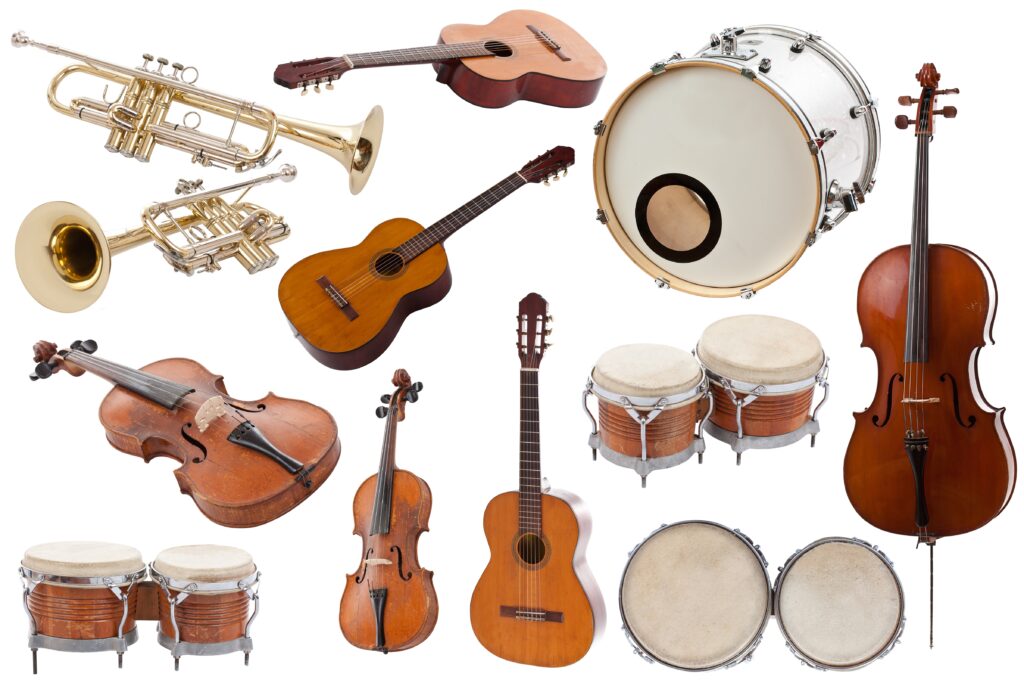
When starting your musical journey, choosing the right instruments best for beginners is crucial to ensuring an enjoyable and rewarding learning experience. Selecting an instrument that suits your personal preferences, physical abilities, and musical goals can significantly impact how motivated you stay and how quickly you progress. Picking the wrong instrument could lead to frustration, slow progress, or even quitting, which is why it’s essential to consider a variety of factors before making your decision. In this guide, we’ll explore some of the best instruments for beginners, their benefits, and how they can set you up for success.
Choosing an instrument that aligns with your abilities and interests can make the learning process smoother and more fulfilling. For instance, beginner-friendly instruments, such as the ukulele or keyboard, offer a manageable learning curve that encourages consistent practice and quick results. On the contrary, opting for a highly complex instrument as your first choice might leave you feeling overwhelmed, which can be discouraging.
So, what are the instruments best for beginners? This blog will guide you through the process of selecting the right instrument and provide insights into why some instruments are better suited for those just starting out. By the end, you’ll have a clearer idea of what to pick and how to get started on your musical journey.
Why Choosing the Right Instrument Matters
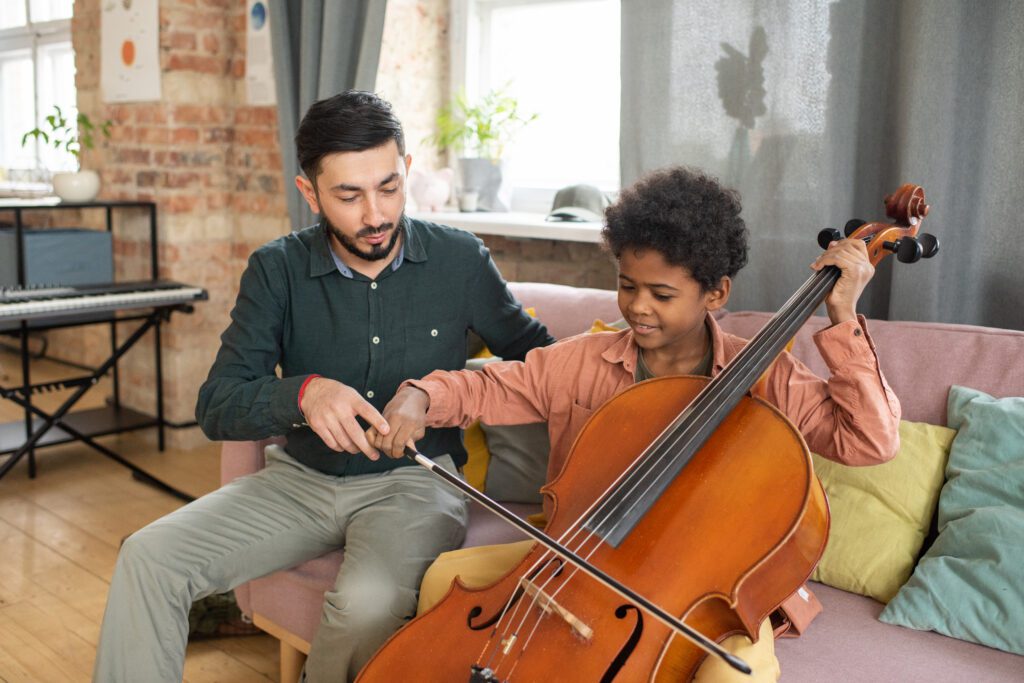
The importance of choosing the right instrument for beginners cannot be overstated. Imagine trying to learn on an instrument that’s too complicated, expensive, or doesn’t match your personal preferences—it can make the learning process frustrating and even lead to giving up entirely. That’s why it’s vital to pick an instrument that is not only beginner-friendly but also suits your goals and lifestyle.
Accessibility and Comfort
One of the most critical aspects of this decision is ensuring that the instrument you choose feels accessible. For example, if you’re a child or have small hands, a guitar with a smaller fretboard or a ukulele may be more comfortable to play. Additionally, instruments with a visual layout, like the piano, can make learning music theory easier for beginners because you can see the notes and scales right in front of you.
Building Motivation with Quick Wins
Another key factor is motivation. When beginners start learning an instrument, they often look for quick wins—simple melodies or chords they can play to feel accomplished. Instruments that allow for this, like the keyboard or ukulele, can build confidence early on. Conversely, instruments with a steeper learning curve, such as the violin, may require more patience, which can be challenging for some beginners.
Aligning with Musical Interests
Furthermore, choosing the right instrument can influence the kind of music you play. For example, if you’re drawn to modern pop or rock, a guitar might be a natural fit. On the other hand, if you’re interested in classical or jazz, the piano could be your best starting point. Whatever you choose, finding an instrument that aligns with your musical interests ensures you’ll enjoy practicing and exploring new pieces.
Setting Yourself Up for Success
Ultimately, selecting an instrument best for beginners is about setting yourself up for success. It ensures that your learning process is both enjoyable and rewarding, laying a strong foundation for future growth.
Factors to Consider When Choosing an Instrument

When deciding on your first instrument, several factors need to be taken into account to ensure you make the right choice. These factors not only affect how quickly you’ll learn but also how much you’ll enjoy the process. Let’s explore the key considerations:
1. Age and Physical Ability
Your age and physical ability play a significant role in choosing the right instrument. For young children, instruments that are small, lightweight, and easy to handle—such as the ukulele, recorder, or a digital keyboard—are excellent choices. These instruments allow for comfortable playing without causing strain. Similarly, if you’re an adult beginner, it’s important to select an instrument that aligns with your physical comfort. For instance, some instruments, like the violin, require proper posture and hand positioning, which might take some getting used to.
2. Budget
Your budget is another critical factor. As a beginner, it’s wise to avoid overly expensive instruments until you’re sure of your commitment. Affordable options, such as beginner keyboards or entry-level guitars, are great for testing the waters. Many music stores also offer rental options, allowing you to explore different instruments without making a large investment upfront.
3. Musical Preferences
The type of music you enjoy listening to can guide your choice of instrument. If you love classical music, you might gravitate toward the piano or violin. For fans of rock or folk, the guitar or drums might be more appealing. Choosing an instrument that aligns with your musical taste will keep you motivated to learn and explore songs you already love.
4. Accessibility of Resources
Having access to learning resources, such as teachers, tutorials, or online lessons, is essential. Some instruments, like the piano and guitar, have a wealth of beginner-friendly tutorials available online. Others, like the flute or violin, may require a teacher to help you with proper technique. Ensuring that resources are readily available for your chosen instrument can make the learning process much easier.
5. Space and Noise Considerations
It’s important to consider where and when you’ll be practicing. Instruments like the drums or trumpet can be loud and may not be ideal if you live in an apartment or have noise restrictions. In such cases, quieter instruments, such as an electronic keyboard or ukulele, might be better suited for your environment.
By carefully evaluating these factors, you can make an informed decision about which instrument is best for you as a beginner. Remember, the goal is to find an instrument that feels enjoyable and aligns with your lifestyle, making your musical journey as smooth and rewarding as possible.
Top Instruments Best for Beginners
Choosing the right instrument can set the tone for your musical journey. Let’s explore some of the most beginner-friendly instruments, along with why they stand out as excellent options for those just starting:
Piano/Keyboard
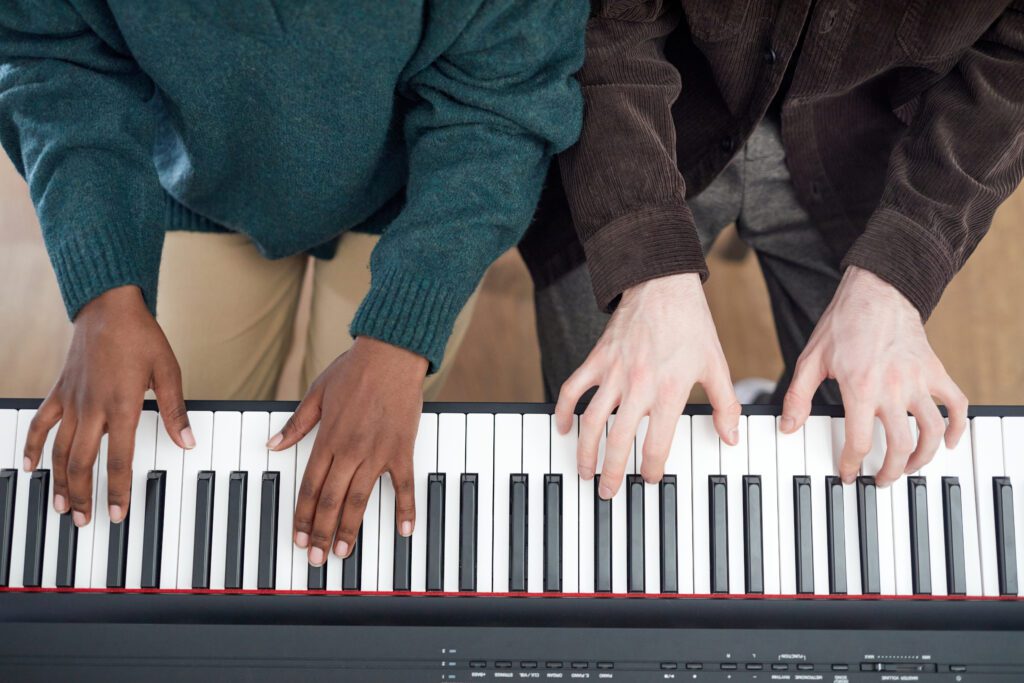
The piano is one of the best instruments for beginners due to its straightforward design and accessibility. Unlike other instruments, the layout of the piano keys visually represents musical notes, making it easier to understand concepts like scales and chords. Beginners often find it rewarding to play simple melodies and see quick progress.
For those looking for a more compact and affordable option, digital keyboards are an excellent alternative to traditional pianos. They come with features such as built-in rhythms, guided lessons, and volume control, making them perfect for home practice. With consistent effort, beginners can master basic songs within weeks, boosting their confidence and motivation.
Explore our Piano Lessons Online to learn Piano from the basics
Guitar
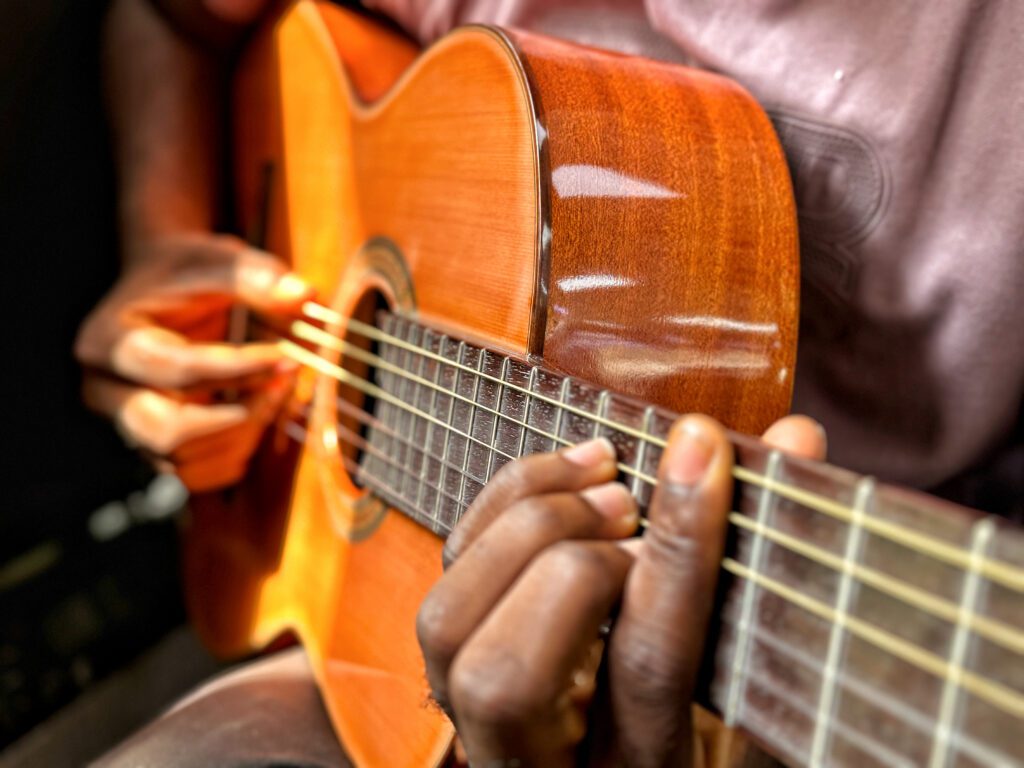
Guitars are a popular choice for beginners who want to explore a wide range of musical genres, from pop and rock to classical and jazz. Acoustic guitars are great for those who enjoy unplugged, soulful music, while electric guitars appeal to individuals who dream of jamming to electrifying solos.
Beginners usually start with basic chords and strumming patterns, which allow them to play recognizable songs quickly. Many beginner-friendly guitar models are affordable and designed with features like thinner necks or nylon strings, which are easier on the fingers. The portability of guitars also makes them a convenient choice for learners on the go.
Learn to play Guitar from the basics and gradually move to the advanced concepts in our Guitar Lessons Online.
Ukulele
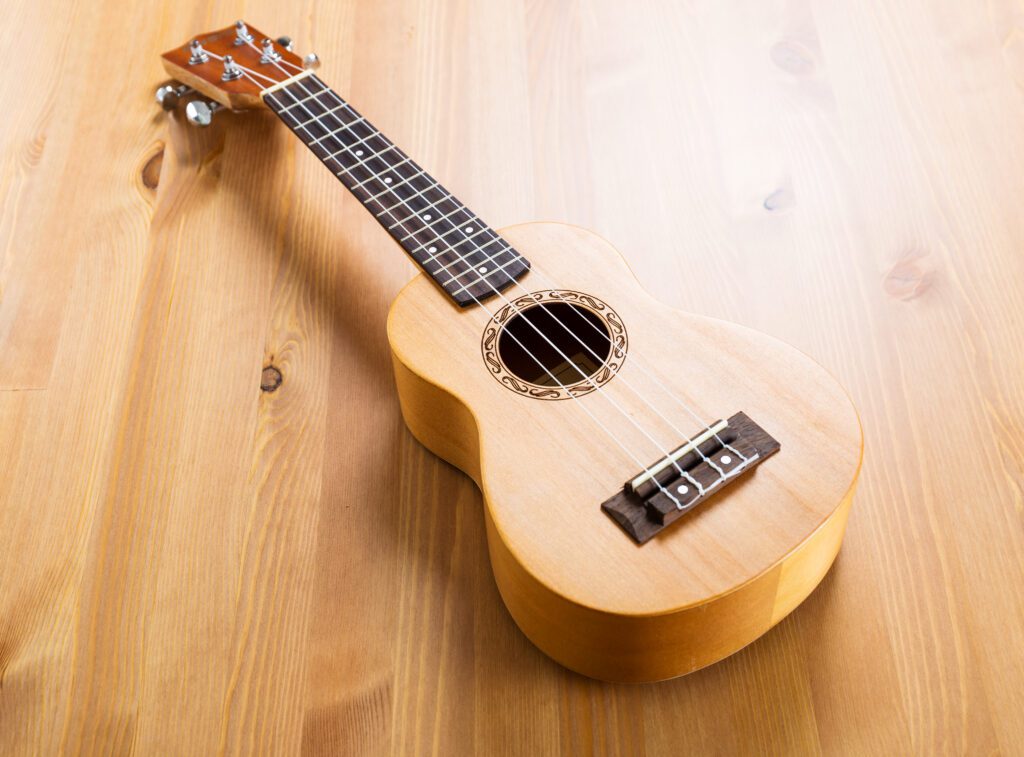
Known for its cheerful sound and simplicity, the ukulele is one of the easiest instruments for beginners to learn. With only four strings, it’s far less intimidating than a guitar, and its small size makes it comfortable for children and adults alike.
Beginners can learn to play basic chords in just a few days, and the ukulele’s lighthearted tone makes every session enjoyable. It’s also an affordable instrument, with many beginner models available at a low cost.
Master Ukulele from scratch in our Ukulele Lessons Online
Violin
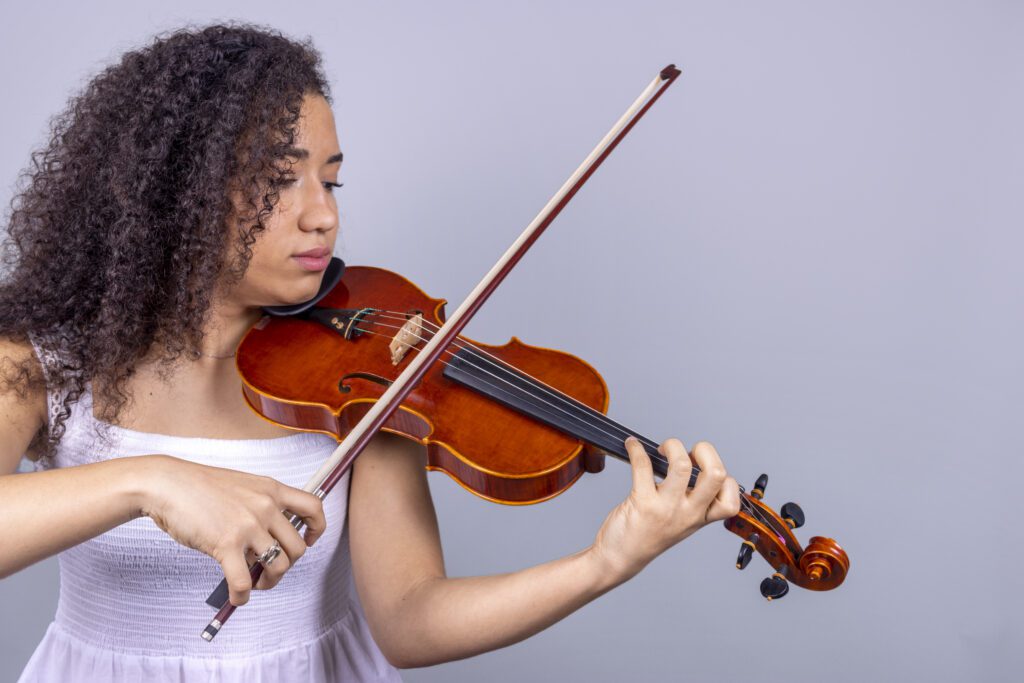
Although slightly more challenging than some other instruments, the violin is a rewarding choice for beginners who are drawn to classical or orchestral music. Its compact size makes it suitable for learners of all ages.
Beginners can start by learning proper bowing techniques and finger placements, and with consistent practice, they can play simple tunes within a few months. Many beginner violins are budget-friendly, and teachers often recommend sizes that match the learner’s physical attributes.
Drums
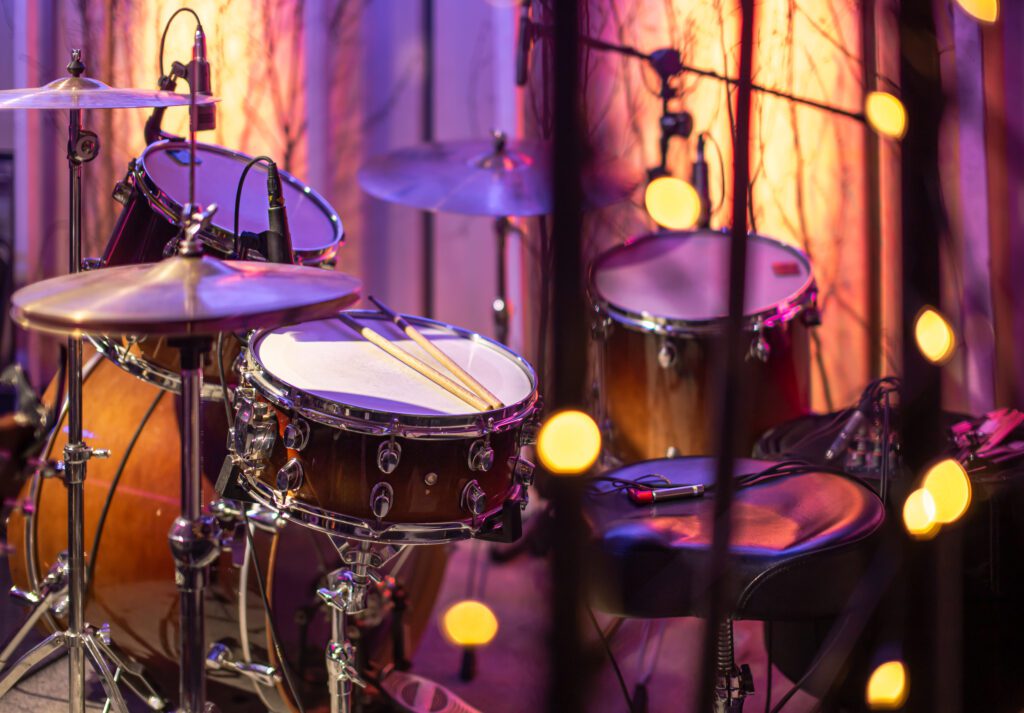
For rhythm enthusiasts, drums offer an exciting way to dive into music. They are ideal for those who enjoy high-energy, physical playing. While traditional drum sets can be loud, electronic drum kits are an excellent alternative for beginners who want to practice without disturbing others.
Learning basic beats and rhythms on the drums can be achieved quickly, making it a highly rewarding instrument for beginners. Additionally, drumming improves coordination and timing, skills that are transferable to other areas of life.
Explore our Beginner Drums Lessons to master rhythms from scratch.
Recorder/Flute
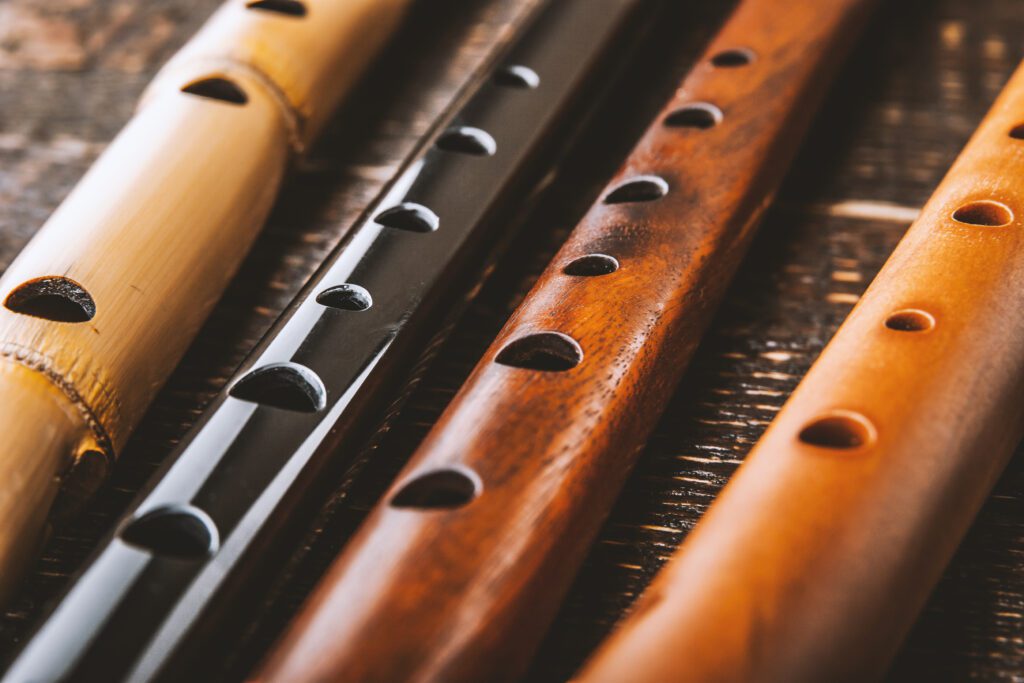
The recorder is often one of the first instruments introduced to children in schools, and for good reason. It’s lightweight, easy to play, and affordable. Beginners can start with simple tunes while learning essential skills like breath control and finger positioning.
Similarly, the flute is another great option for beginners, especially those interested in classical or jazz music. While it requires a bit more practice to master the right embouchure (mouth position), it’s a highly versatile instrument that can produce beautiful melodies.
Digital Instruments (e.g., MIDI Controllers)
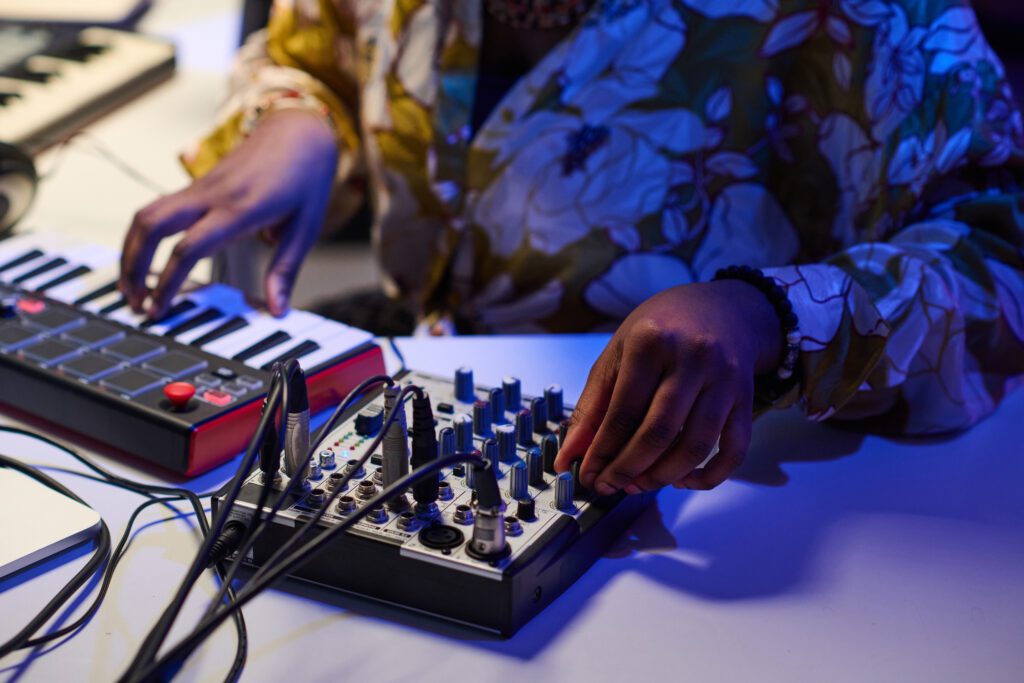
For tech-savvy beginners, digital instruments like MIDI controllers are a fantastic choice. These instruments allow learners to explore music production and experiment with beats, melodies, and sound effects. With endless online tutorials and software options, digital instruments open up creative possibilities for aspiring musicians.
How to Get Started with Your Chosen Instrument

Once you’ve chosen your instrument, the next step is to start learning. This stage is crucial, as having the right guidance can significantly impact your progress and motivation. Here’s how you can get started:
Purchase or Rent Your Instrument
Before you begin, decide whether you’d like to purchase or rent your chosen instrument. Renting can be a great way to test an instrument without a significant upfront investment, while purchasing allows you to fully commit to your learning journey. Many music stores offer affordable beginner models designed to make playing comfortable and enjoyable.
Find Beginner-Friendly Lessons
Finding the right lessons is just as important as choosing the right instrument. At The Mystic Keys, we specialize in offering beginner-friendly music classes tailored to your pace and goals. Whether you prefer one-on-one sessions or group lessons, our experienced instructors are dedicated to creating a positive learning environment.
Our online platform makes it easy for beginners to access high-quality lessons from the comfort of their own homes. With step-by-step guidance, interactive resources, and personalized feedback, you’ll feel supported every step of the way. Whether you’re learning the piano, guitar, or any other instrument, The Mystic Keys is here to help you succeed. Here’s a list of top Student Performers and Achievers at The Mystic Keys
Establish a Practice Routine
Consistency is key when learning a new instrument. Start by dedicating just 15–20 minutes a day to practice, and gradually increase your session length as you become more comfortable. Set small, achievable goals for each practice session, such as learning a new chord or mastering a simple melody.
Utilize Learning Resources
Take advantage of the vast array of learning resources available today. Online tutorials, sheet music, and mobile apps can complement your lessons and provide additional practice opportunities. At The Mystic Keys, our students gain access to exclusive resources that make learning fun and engaging.
Benefits of Learning a Musical Instrument as a Beginner

Learning a musical instrument as a beginner offers numerous benefits that go beyond music itself. Here are some of the key advantages:
Cognitive Development
Playing an instrument stimulates the brain, improving memory, problem-solving skills, and creativity. Studies show that music learners often excel in academic subjects like math and language.
Stress Relief
Music has the power to soothe the mind and reduce stress. For beginners, practicing an instrument can be a meditative experience, helping to improve overall mental well-being.
Discipline and Focus
Learning an instrument requires patience and dedication. As you progress, you’ll develop better discipline and focus, skills that are valuable in all aspects of life.
Confidence Boost
There’s nothing quite like the feeling of mastering your first song or performing in front of others. These achievements build self-confidence and encourage you to take on new challenges.
Social Connections
Music often brings people together. Whether you’re joining a band, performing at events, or simply sharing your progress with friends and family, playing an instrument creates opportunities for meaningful connections.
By learning an instrument, beginners embark on a journey of personal growth, creativity, and joy. With the right guidance and resources, such as those provided by The Mystic Keys, anyone can unlock their potential and discover the magic of music.
Common Challenges Beginners Face and How to Overcome Them
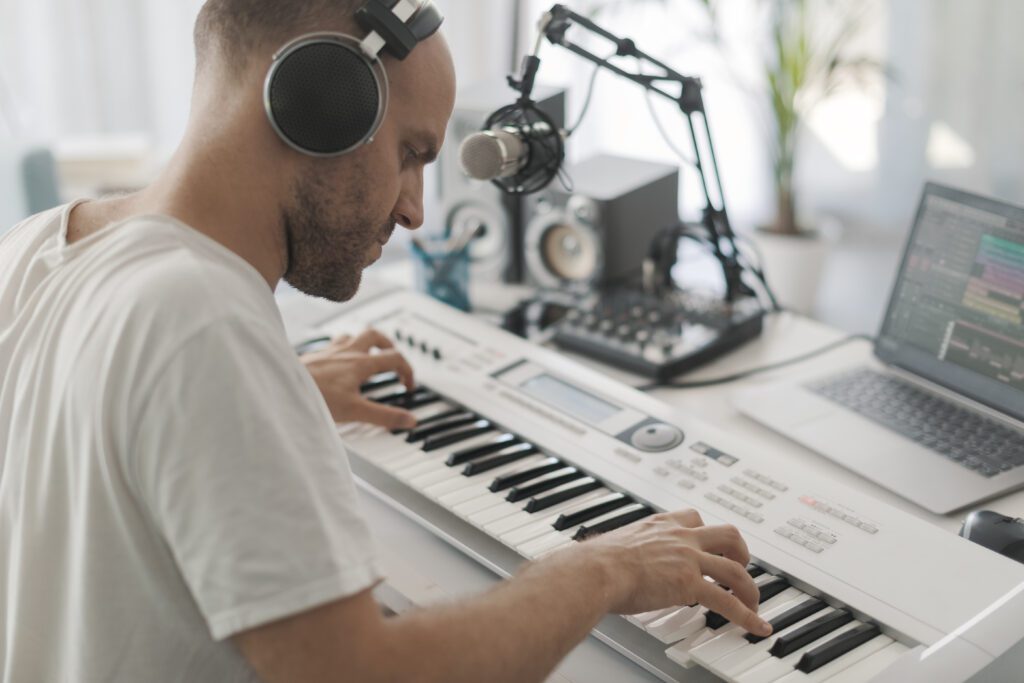
Learning a musical instrument can be incredibly rewarding, but it’s not without its challenges. Many beginners face obstacles that may feel discouraging at first. However, with the right mindset and strategies, these challenges can be turned into stepping stones for growth.
Challenge 1: Lack of Time
One of the most common hurdles for beginners is finding time to practice. With busy schedules and other commitments, it can be hard to dedicate consistent time to learning an instrument.
How to Overcome It:
Start by setting aside just 10–15 minutes a day for focused practice. Short, consistent sessions are more effective than occasional long ones. Use tools like timers or practice apps to stay on track, and consider integrating music practice into your daily routine, such as practicing after dinner or before bed.
Challenge 2: Frustration with Slow Progress
Many beginners expect to play complex pieces quickly, which can lead to frustration when progress feels slow. It’s important to remember that learning an instrument takes time and patience.
How to Overcome It:
Set small, achievable goals for each practice session, like mastering a single chord or melody. Celebrate these milestones to keep yourself motivated. At The Mystic Keys, we encourage students to focus on progress rather than perfection, helping them build confidence step by step.
Challenge 3: Physical Discomfort
Some beginners experience discomfort, such as sore fingers from playing the guitar or wrist strain from improper piano posture.
How to Overcome It:
Pay attention to proper technique and posture from the start. If you’re unsure, seek guidance from a teacher or online tutorial. At The Mystic Keys, our instructors ensure that students develop healthy playing habits to avoid discomfort or injury. Regular breaks during practice sessions can also help prevent strain.
Challenge 4: Difficulty Reading Music
Learning to read sheet music can be intimidating for beginners, especially if they have no prior experience with musical notation.
How to Overcome It:
Begin with simplified notation, such as chord charts or beginner-friendly sheet music. Over time, you’ll become more comfortable with reading music as your skills develop. Additionally, The Mystic Keys provides personalized lessons that simplify music theory concepts, making it easier for beginners to grasp.
By recognizing these challenges and proactively addressing them, beginners can stay motivated and continue making steady progress on their musical journey.
Tips for Staying Motivated While Learning
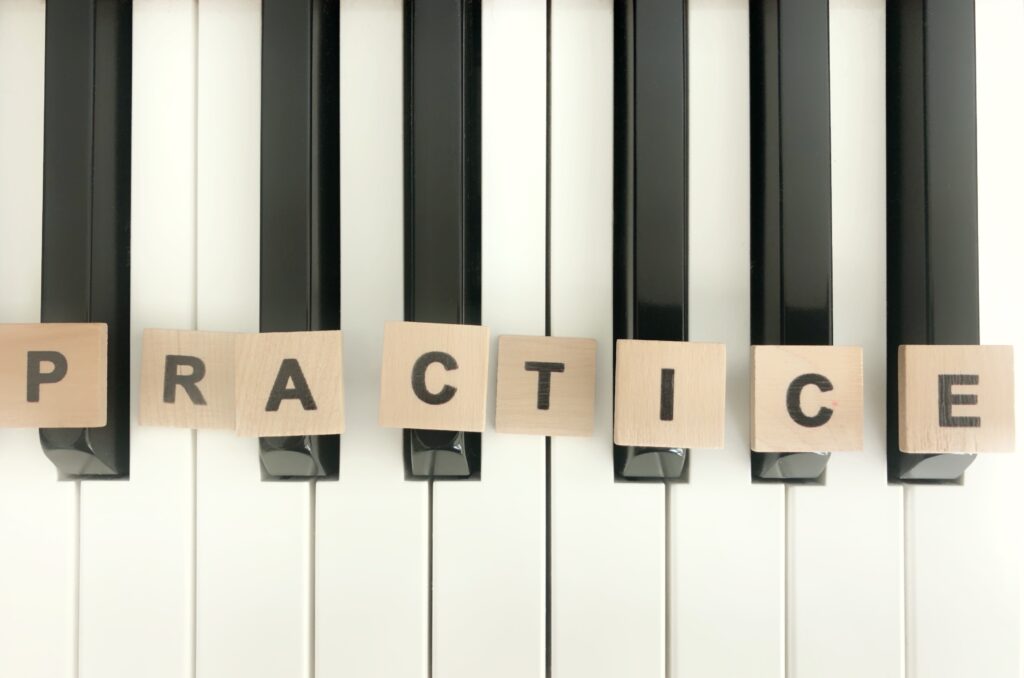
Staying motivated is crucial for beginners as they navigate the ups and downs of learning an instrument. While enthusiasm may come naturally at the start, maintaining it over time requires intentional effort. Here are some tips to keep your motivation alive:
1. Set Clear Goals
Having specific goals can give you a sense of direction and purpose. For example, decide whether you want to learn a particular song, master a technique, or perform for friends and family. Clear goals help you measure progress and stay focused.
2. Track Your Progress
Keeping a journal or using a practice app to track your progress can be incredibly rewarding. Documenting small victories, like learning a new chord or playing a song without mistakes, helps you see how far you’ve come.
3. Reward Yourself
Celebrate your achievements, no matter how small they seem. For instance, treat yourself to a new songbook or a fun accessory for your instrument when you reach a milestone. Rewards create positive reinforcement and keep you excited to learn.
4. Practice with Others
Learning alongside friends or joining a community of musicians can make the experience more enjoyable. Whether it’s an online group or a local class, practicing with others adds a social element that keeps you engaged. At The Mystic Keys, we foster a supportive community where students inspire and learn from each other.
5. Stay Inspired
Listen to music that excites you, watch performances by skilled musicians, and remind yourself of why you started learning in the first place. Inspiration is the fuel that keeps motivation alive.
6. Be Patient with Yourself
It’s natural to face setbacks or moments of self-doubt as a beginner. Instead of focusing on mistakes, embrace them as part of the learning process. Remember, every expert was once a beginner.
Staying motivated is all about creating an environment where learning feels enjoyable and rewarding. With these tips, you can keep your enthusiasm alive and continue making progress on your musical journey.
Why Learning Music Is a Lifelong Gift

Learning a musical instrument is much more than a hobby—it’s an investment in your personal growth and happiness. While the process of learning can be challenging, the rewards are immeasurable and last a lifetime.
A Source of Joy and Creativity
Playing an instrument allows you to express yourself in ways that words cannot. Whether you’re creating your own melodies or interpreting the works of great composers, music is a powerful outlet for emotions and creativity.
Improved Cognitive Skills
Learning an instrument sharpens your mind by improving memory, focus, and problem-solving abilities. These benefits extend beyond music and positively impact other areas of life, including academic and professional pursuits.
Connection with Others
Music is a universal language that brings people together. By learning an instrument, you can connect with others through performances, collaborations, or simply sharing your progress with loved ones. The Mystic Keys, for example, offers opportunities for students to participate in recitals and group performances, creating a sense of community and belonging.
A Lifelong Hobby
Unlike many activities, music is something you can enjoy throughout your life. Whether you’re a child or an adult, there’s always room to grow and explore new challenges with your instrument.
Legacy and Inspiration
Learning an instrument allows you to inspire others and pass on the gift of music. Whether it’s teaching your own children, performing for friends, or even sharing your talent with the world, music has the power to leave a lasting impact.
At The Mystic Keys, we believe in nurturing this lifelong gift by offering lessons that cater to learners of all ages and skill levels. Our beginner-friendly approach ensures that students not only learn to play but also develop a deep appreciation for the art of music.
Final Thoughts | Begin Your Musical Journey Today
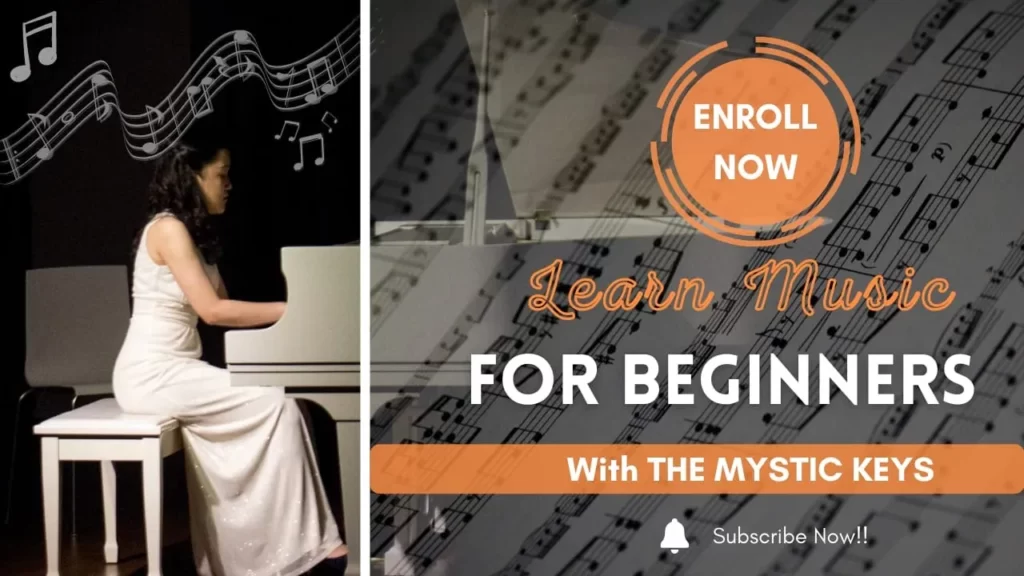
Embarking on your journey to learn a musical instrument is one of the most enriching decisions you can make. With the right instrument, guidance, and mindset, the process can be both enjoyable and rewarding. Whether you’re drawn to the elegance of the piano, the simplicity of the ukulele, or the rhythm of the drums, there’s an instrument out there waiting for you.
At The Mystic Keys, we’re passionate about helping beginners discover the joy of music. Our personalized lessons, expert instructors, and supportive community ensure that every student feels confident and motivated to achieve their goals.
So, why wait? Choose your instrument, join The Mystic Keys, and take the first step toward a lifelong love of music.
For more information and exciting resources about learning music, visit our website at The Mystic Keys. For more music content and exciting offers follow us on
Facebook, Instagram, YouTube, LinkedIn, Twitter, Pinterest, Reddit, Threads, and Quora.








